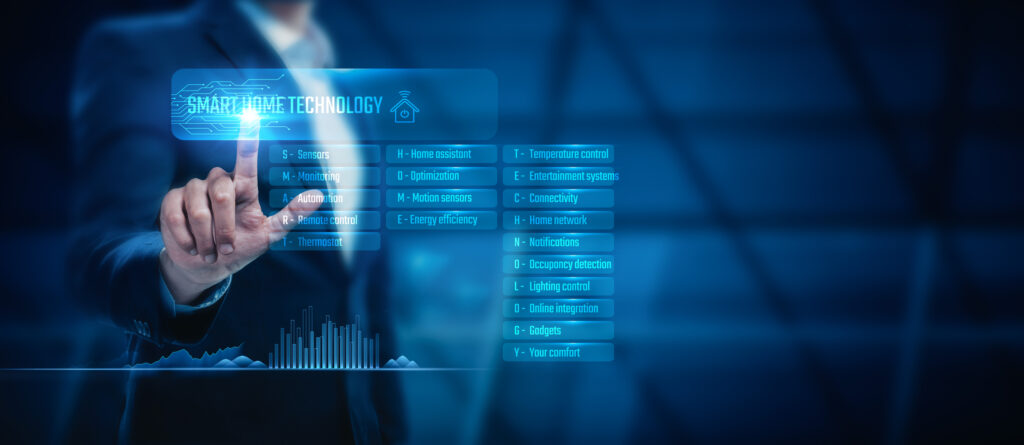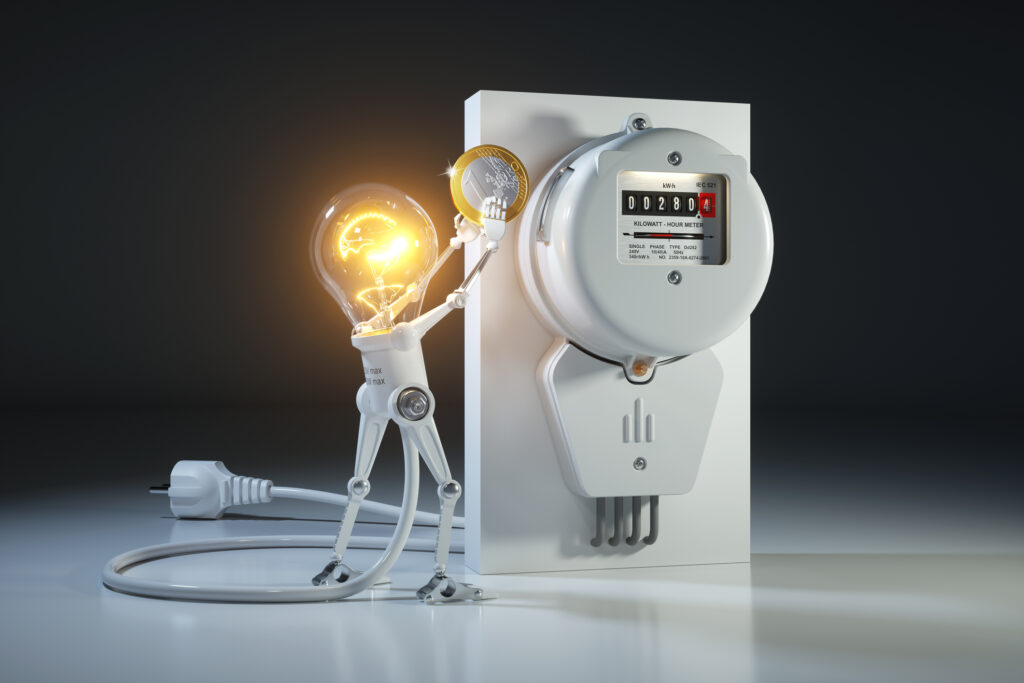
Discover the Advantages of Residential Energy Automation
Residential energy automation emerges as a leading solution, particularly for those in Wilmington, NC, aiming to streamline their energy usage. This innovative approach not only simplifies home management but also promotes a more sustainable lifestyle. By integrating smart systems, residents can enjoy unprecedented control over their household’s energy consumption.
The concept of residential energy automation is gaining traction for its ability to provide real-time insights into energy usage. Homeowners can monitor and adjust their consumption with ease, leading to significant savings on utility bills. This level of management is especially appealing in areas like Wilmington, where diverse weather patterns demand adaptive home energy strategies. The convenience of remotely controlling home environments is a game-changer for many.
Moreover, the adoption of residential energy automation systems contributes to a greener planet. By optimizing energy use, households reduce their carbon footprint, aligning personal comfort with ecological responsibility. This balance is crucial in today’s climate-conscious society, where every bit of energy conservation matters. Residents not only benefit financially but also partake in a larger movement towards environmental sustainability.
As we delve deeper into the advantages of residential energy automation, it’s clear that this technology is more than a trend, it’s a lifestyle shift. From enhanced energy efficiency to improved home management and a commitment to sustainability, the benefits are vast. For homeowners in Wilmington, NC, exploring residential energy automation could be the key to unlocking a more convenient, cost-effective, and eco-friendly living space.

What is Residential Energy Automation?
Residential energy automation transforms how we interact with our homes, making the concept worth exploring. It involves integrating smart devices and systems to manage energy consumption effectively. Homeowners in Wilmington, NC, and beyond are turning to this technology for a seamless way to control heating, lighting, and other home appliances. This shift not only enhances convenience but also ensures energy is used wisely and efficiently.
Imagine adjusting your home’s temperature or turning off lights with just a few clicks on your smartphone. This level of control is what residential energy automation offers. It allows for the scheduling of devices to operate only when needed, reducing unnecessary energy use. Such precise management leads to lower utility bills, a benefit that resonates with many seeking cost-effective solutions for their homes.
Beyond personal savings, residential energy automation plays a crucial role in environmental conservation. By optimizing how and when energy is consumed, it minimizes waste and reduces the overall carbon footprint of a household. This contribution to sustainability is significant, reflecting a growing awareness and responsibility towards our planet. Residents who adopt this technology not only save money but also support a healthier environment.
In conclusion, the advantages of residential energy automation extend beyond mere convenience. They embody a forward-thinking approach to living, where technology and sustainability converge. For homeowners in Wilmington, NC, embracing this innovation means enjoying a smarter, more efficient, and eco-friendly home. As this technology evolves, its potential to reshape our daily lives and protect our planet becomes increasingly clear.
Benefits of Automating Your Home’s Energy
Automating your home’s energy brings a multitude of benefits that extend well beyond mere convenience. It empowers homeowners in Wilmington, NC, with the ability to finely tune their energy consumption, leading to more efficient use of resources. This efficiency not only helps in reducing monthly utility costs but also enhances the overall comfort of living spaces. By automating systems such as heating, cooling, and lighting, residents can ensure their homes operate at peak efficiency without constant manual adjustments.
One of the standout advantages of residential energy automation is its impact on the environment. By optimizing energy use, these systems significantly lower the carbon emissions associated with household energy consumption. This shift towards more sustainable living practices reflects a growing commitment among homeowners to not only save money but also protect the planet. As more individuals recognize the importance of their ecological footprint, residential energy automation stands out as a practical step towards environmental stewardship.
Moreover, the integration of smart technology into home energy systems offers unparalleled convenience. Imagine adjusting your home’s settings to the perfect temperature before you even walk through the door, or remotely turning off appliances while you’re away. This level of control not only simplifies daily routines but also provides peace of mind, knowing that your home operates efficiently even in your absence. For those who value both comfort and convenience, residential energy automation is a game-changer.
Finally, adopting residential energy automation can significantly enhance property value. As more prospective buyers prioritize energy efficiency and smart technology, homes equipped with these systems become increasingly attractive on the market. This added value is a compelling reason for homeowners to consider automating their energy usage. In essence, residential energy automation not only benefits current residents with savings and convenience but also positions their property as a desirable investment for the future.
How Residential Energy Automation Works
Understanding how residential energy automation works begins with recognizing the smart devices and systems that form its core. These technologies connect to the internet, allowing homeowners to manage their energy usage through mobile apps or web interfaces. For instance, in Wilmington, NC, residents can adjust their heating and cooling systems remotely, ensuring their homes are comfortable upon arrival without wasting energy in their absence. This seamless integration of technology into daily life marks a significant step towards smarter living.
The process involves sensors and smart meters that monitor energy consumption in real time. These devices provide valuable data, enabling homeowners to identify patterns and areas where energy usage can be optimized. By analyzing this information, residents can make informed decisions, such as adjusting their thermostat settings or scheduling appliances to run during off-peak hours. This proactive approach to energy management not only reduces costs but also contributes to a more sustainable household.
Automation plays a pivotal role in this system by using algorithms to learn from your habits and preferences. Over time, it can automatically adjust settings to match your schedule, optimizing energy use without requiring manual input. For example, lights can be programmed to turn off when a room is unoccupied, or the thermostat can lower the temperature during the night. This intelligent adaptation ensures that comfort and efficiency go hand in hand, offering a tailored experience to each user.
Moreover, residential energy automation systems can be integrated with renewable energy sources, such as solar panels, to further enhance their efficiency and environmental impact. In areas like Wilmington, NC, harnessing solar power can significantly offset energy costs, with the automation system ensuring that this renewable energy is utilized to its fullest potential. This synergy between automation and renewable energy sources exemplifies the future of sustainable, efficient home management, paving the way for greener living spaces.
Key Components of a Smart Energy System
Exploring the key components of a smart energy system reveals the intricate technology behind residential energy automation. Central to this system are smart thermostats, which allow homeowners in Wilmington, NC, to control their heating and cooling systems with precision. These devices can learn from your habits, adjusting the temperature automatically to suit your schedule and preferences. This capability ensures your home remains comfortable while maximizing energy efficiency.
Smart lighting plays a crucial role in residential energy automation as well. By using LED bulbs that can be dimmed or turned off remotely, residents can significantly reduce their energy consumption. These lights can also be programmed to respond to natural light levels or to switch on only when someone is in the room. Such features not only save energy but also extend the lifespan of the lighting fixtures.
Another essential component is the smart meter, which provides real-time data on energy usage. This information is invaluable for identifying opportunities to save energy and for monitoring the performance of other smart devices in the home. With this knowledge, homeowners can make informed decisions about their energy habits, leading to further reductions in their utility bills and environmental impact.
Finally, integrating renewable energy sources, like solar panels, with a residential energy automation system elevates its effectiveness. In homes equipped with these systems, automation ensures that energy generated from the sun is used efficiently, reducing reliance on the grid. This integration not only lowers energy costs over time but also supports a more sustainable lifestyle by harnessing natural resources.
Implementing Residential Energy Automation in Your Home
Implementing residential energy automation in your home starts with a clear plan and understanding of your energy needs. Homeowners in Wilmington, NC, can begin by evaluating which aspects of their home consume the most energy. This initial assessment helps in prioritizing the installation of smart devices that will offer the greatest impact on energy savings and efficiency. It’s a strategic approach to ensure that the transition to automated energy management is both smooth and beneficial.
Once the areas of high energy use are identified, the next step involves selecting the right technology that aligns with your lifestyle and budget. Residential energy automation encompasses a variety of smart devices, from thermostats to lighting systems, each designed to enhance control over your home’s energy consumption. It’s essential to choose devices that are compatible with each other to facilitate seamless integration and operation. This compatibility ensures that homeowners can maximize the advantages of their smart home systems.
Professional installation is a crucial component of implementing residential energy automation effectively. Expert installers not only ensure that all devices are set up correctly but also provide valuable insights on how to optimize the system for your specific needs. They can offer personalized advice on how to utilize the automation system to its full potential, enhancing both comfort and energy efficiency in your home. This guidance is invaluable for residents new to smart home technology, ensuring they feel confident in managing their automated systems.
Finally, ongoing monitoring and adjustment of the residential energy automation system play a key role in achieving long-term savings and efficiency. Homeowners should regularly review the system’s performance, making adjustments as necessary to adapt to changing habits or seasons. This proactive approach allows for continuous improvement of energy usage, ensuring that the benefits of residential energy automation are maximized over time. It’s a commitment to smarter, more sustainable living that pays dividends in both comfort and cost savings.
The Role of AI and Machine Learning
The integration of AI and machine learning in residential energy automation marks a significant leap forward in how homes manage energy. In Wilmington, NC, these technologies allow systems to analyze vast amounts of data, predicting and adjusting to homeowners’ energy needs with remarkable precision. This not only ensures optimal comfort but also maximizes energy efficiency. The ability of AI to learn from patterns and make intelligent adjustments is transforming home energy management into a highly intuitive process.
Furthermore, machine learning algorithms play a crucial role in identifying potential savings opportunities within a home’s energy consumption. By analyzing past usage data, these systems can suggest adjustments to heating, cooling, and lighting schedules, leading to substantial reductions in energy bills. This level of personalized automation empowers homeowners to make smarter, data-driven decisions about their energy use. It’s an approach that combines convenience with cost-effectiveness, appealing to those looking to streamline their energy expenses.
The predictive capabilities of AI in residential energy automation also enhance the longevity of home appliances. By foreseeing and mitigating potential issues before they escalate, AI can schedule maintenance tasks, thereby preventing costly repairs and extending appliance lifespans. This proactive maintenance not only saves money but also contributes to a more sustainable household. Residents benefit from a system that not only manages energy consumption but also looks after the well-being of their home environment.
Lastly, the integration of AI and machine learning with renewable energy sources, like solar power, optimizes the use of natural resources. For homes in Wilmington, NC, this means ensuring that solar energy is used efficiently, reducing reliance on non-renewable energy sources. This intelligent management of energy not only lowers utility bills but also supports a greener, more sustainable lifestyle. Through the smart application of technology, residential energy automation is setting a new standard for eco-friendly living.

Saving Money and the Planet with Residential Energy Automation
Residential energy automation is revolutionizing how we approach energy consumption and sustainability, especially in Wilmington, NC. By integrating smart technology into our homes, we’re not just saving money on utility bills; we’re also taking a significant step towards reducing our environmental impact. This system allows homeowners to manage their energy use more efficiently, ensuring that only the necessary amount of energy is consumed. As a result, we contribute to a healthier planet by minimizing our carbon footprint.
In cities across the country, the adoption of residential energy automation is growing. Homeowners appreciate the dual benefits of cutting down on expenses while supporting eco-friendly practices. By automating energy usage, lights turn off when rooms are unoccupied, and thermostats adjust to optimal temperatures, preventing energy wastage. This smart use of technology ensures that our homes are not only comfortable but also cost-effective and kind to the environment.
Moreover, the flexibility and control offered by residential energy automation systems are unmatched. From anywhere, at any time, homeowners can adjust their home’s energy settings through a simple app. This convenience means that managing our energy consumption fits seamlessly into our busy lives, making it easier than ever to be both economically and ecologically conscious. It’s a win-win situation where convenience meets responsibility, paving the way for a sustainable future.
Finally, the impact of residential energy automation extends beyond individual homes, inspiring communities to adopt more sustainable practices. As more people in Wilmington, NC, and beyond recognize the benefits of this technology, we move closer to a collective goal of energy efficiency and environmental stewardship. By making smart choices about how we use energy, we’re not just saving money; we’re also playing a crucial role in protecting our planet for future generations.
Frequently Asked Questions
What is Residential Energy Automation?
Residential energy automation refers to using technology to manage and control home energy use. It allows homeowners to optimize electricity consumption, leading to savings and efficiency. This system can adjust lighting, heating, and cooling automatically. By doing so, it enhances comfort while reducing energy bills.
How does it save money?
Residential energy automation systems cut costs by managing energy use smartly. They adjust settings for optimal efficiency, reducing wasteful consumption. This leads to lower utility bills every month. Homeowners enjoy savings while keeping their living spaces comfortable.
Can it improve home security?
Absolutely, residential energy automation enhances home security significantly. By automating lights and electronic devices, it creates the appearance of someone always being home. Smart systems can also alert homeowners to unusual energy usage, which may indicate a security breach. This integration of technology offers peace of mind alongside energy efficiency.
What devices are compatible?
Many devices work seamlessly with residential energy automation systems. These include smart thermostats, lighting solutions, and energy-efficient appliances. Homeowners can also integrate security cameras and door locks for enhanced control. This wide compatibility ensures a fully automated and efficient home environment.
Is Residential Energy Automation easy to install?
Installing residential energy automation is straightforward, especially with professional help. Experts like those at Mister Sparky in Wilmington, NC, can ensure a smooth setup. They tailor the system to fit your home’s needs, making the process hassle-free. This way, you can quickly enjoy the benefits of a smart, energy-efficient home.

